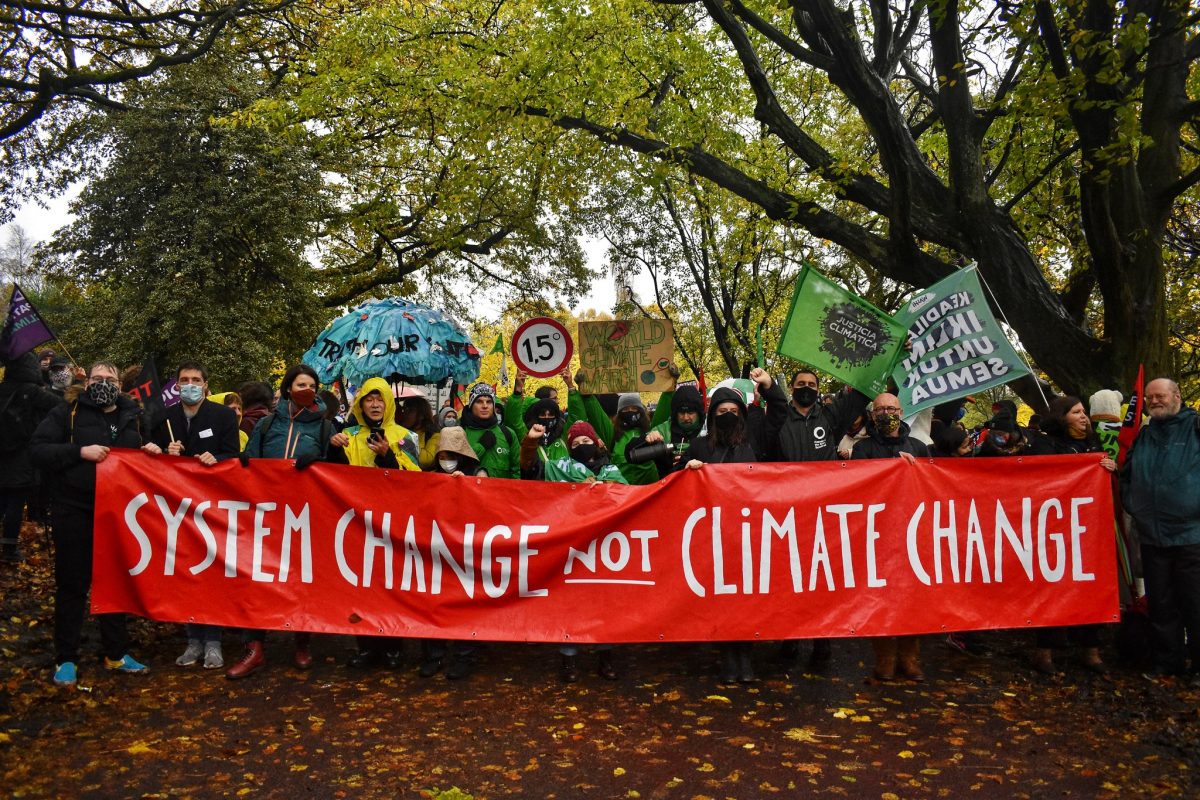
Blog 4: COP19 Warsaw – does it care?
The Polish Government has a funny sense of humour. Having plastered the COP19 slogan ‘I care’ all over Warsaw, in an intensely irritating font, it set about doing its best to demonstrate just how little it actually does care.
Today the COP19 hosts dropped a bombshell by sacking Environment Minister Marcin Korolec for not being pro-shale gas enough (perhaps he was too busy trying to clean up coal to give fracking his full attention). Yes, that’s right, the President of this year’s annual UN climate talks has been fired from his day job for not doing enough to help big energy companies frack the hell out of his country. I suppose we should be grateful that Korolec’s shale-loving replacement is not taking over his job of COP president too…
At the risk of vilifying the Polish Government more than it deserves – because the hosts are getting a lot of flak for their very public blunders during these talks – it is worth remembering that amongst the countries most responsible for bringing our climate to the brink, leadership is not exactly forthcoming. In fact some countries appear to be doing their damnedest to prevent any kind of sensible outcome, while others seem to be content to hide behind their host’s bad behaviour.
The chances of getting anything significant out of Warsaw’s COP were talked down long before they started. The deadline for the really big decisions isn’t until Paris in 2015, let’s not raise our expectations for Warsaw too much, there’s plenty of time.
But that’s not what the science is telling us! And it’s not what the people of the Philippines and other nations around the world suffering already from the impacts of climate change are telling us either. It is on this point that the world’s poorest and most climate vulnerable nations are strongly united at these talks.
The issue of Loss and Damage is an acceptance that the reality of global warming is such that it’s not enough to talk only about cutting emissions, and helping countries’ to adapt to its impacts, but that some impacts of climate change will be impossible to live with or prevent. When the glaciers have gone and the seas have swollen, the peoples and nations who have lost their means of existence and ways of life will require some form of coping mechanism.
This is only one of the issues which wealthy countries simply are not living up to their moral responsibility on – the responsibility they accepted when they signed up to the UN climate convention more than 20 years ago – and led to a walk out on negotiations by developing countries in the early hours of this morning.
Somewhat mind bogglingly the urgency of the need to cut carbon emissions still hasn’t filtered through into the commitments on the table either. The science is clear – we are facing 5o C of warming by the end of the century unless we leave most of the fossil fuels we know about in the ground; the economists are clear – the sooner we decarbonise the less costly it will be; but what’s also clear is the distinct lack of willingness to get on with the job.
This is the message that six big NGOs and a trade union body, echoing negotiators in the global south, gave loud and clear at a press conference earlier today – we are facing planetary emergency, enough talking, time for action. World leaders face a stark choice: act now, or be responsible for climate catastrophe.
